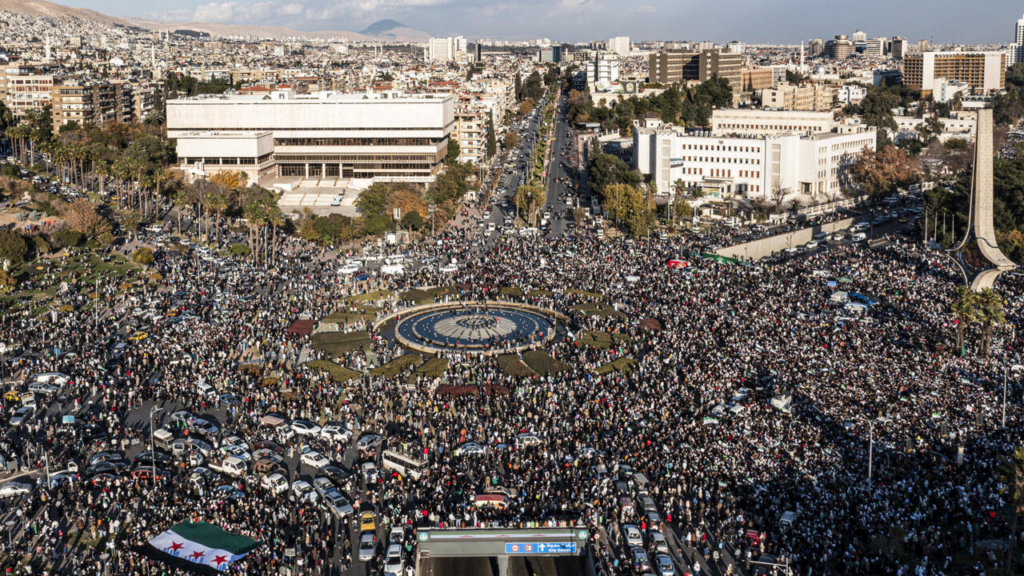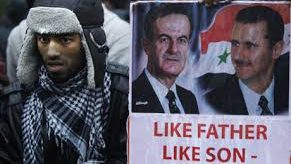PHOTO: Like his father (C) before him, Bashar al-Assad (R) used the same tools: repression, rejection of compromise and, brutal bloodshed.
By : Ya Libnan Editorial Board
As Syria celebrates the end of decades under an authoritarian regime, many questions arise about the rule and character of Bashar al-Assad. Under his leadership, Syrians lived in an atmosphere of fear and mistrust. People stopped confiding in one another, wary of the pervasive culture of surveillance and persecution. Ironically, it appears that Assad himself was also a man devoid of trust, unable to confide in anyone—not even his closest family members.
After Assad was deposed, it became clear how profoundly isolated he was. His only brother, Maher al-Assad, reportedly did not know that his brother fled to Russia.As soon as he found out he flew a helicopter to Iraq before ultimately fleeing to Moscow. Another cousin, who attempted to escape, was killed by rebels. Even Assad’s prime minister, a figure ostensibly at the heart of his government, was kept in the dark about his intentions to flee. Instead, Assad continued to deceive those around him, lying about Russia’s supposed support until the very end.

This raises critical questions about Assad’s character. How could a man who ruled Syria for 24 years not trust anyone—not his family, not his closest allies, not his government or his army? What kind of person operates with such absolute isolation, even at the cost of alienating those who have supported him since he inherited power from his father, another notorious tyrant?
Assad’s inability to form genuine connections or confide in anyone underscores the psychological toll of his autocratic rule—not just on the people of Syria but on himself. His reign was built on deception, fear, and control, and in the end, he was a man utterly alone, betrayed by the very system he created.

As Syria turns a new page, the focus must now shift from the fall of tyranny to the promise of renewal. The country faces monumental challenges in rebuilding its shattered infrastructure, healing the deep divisions within its society, and restoring trust among its people. Future leaders must prioritize unity and reconciliation, fostering a culture of inclusivity and accountability to repair the social fabric torn apart by decades of oppression.
Syria has the potential to become a cornerstone of a new, peaceful, and prosperous Middle East. Its strategic location, cultural richness, and resilient people can be powerful assets in creating a brighter future. But this vision requires leaders who respect the rule of law, embrace democratic principles, and commit to ending corruption and authoritarianism. The lessons of Assad’s regime should serve as a stark warning: a government built on fear and mistrust is destined to collapse under the weight of its own failures.
The world will be watching as Syria embarks on this journey of recovery. For the sake of its people and the region, we hope its future leaders rise to the occasion and pave the way for lasting peace, prosperity, and freedom.

